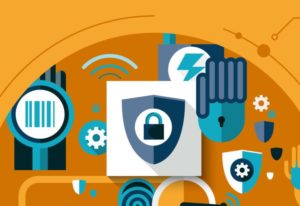Throughout February FindBiometrics will be placing a featured focus on the healthcare market. To get things started, we’re kicking things off with a primer on the topic. Healthcare is a dynamic area for biometrics, offering areas of potential deployment in everything from administrative and HR operations, to enabling home care thanks to wearable tech that can scan a patient’s vital signs.
Here is a brief overview of the current biometric healthcare landscape:
Opportunity Awaits
 While the benefits of biometrics in healthcare have long been proclaimed by strong authentication proponents and hospital CTOs, the market is still in a nascent phase. As such, a great deal of opportunity lies in wait for vendors and healthcare providers alike. Thanks to the mounting concerns regarding data security, Transparency Market Research says in a recent report, insurance providers are going to begin demanding biometric security when it comes to biometric data. The risk of a data breach, according to the firm, now outweighs the cost of implementation.
While the benefits of biometrics in healthcare have long been proclaimed by strong authentication proponents and hospital CTOs, the market is still in a nascent phase. As such, a great deal of opportunity lies in wait for vendors and healthcare providers alike. Thanks to the mounting concerns regarding data security, Transparency Market Research says in a recent report, insurance providers are going to begin demanding biometric security when it comes to biometric data. The risk of a data breach, according to the firm, now outweighs the cost of implementation.
Additionally, healthcare professionals are becoming increasingly time poor—a symptom that can be remedied with the convenience and security of biometric solutions. Tractica points to this demand in a report of its own, but underlines an historical challenge biometrics vendors have had in penetrating the healthcare admin space: cultivating the proper sales channels.
In the area of vital biometrics and remote care, opportunity is increasing too. Innovations in vital tracking and wearables have allowed for a proliferation of healthcare-enabling tech, while the emergence of eHealth interoperability standards are helping facilitate this latest trend in mobile biometrics.
Take a look through the following links to get a better picture of the opportunities in current day healthcare biometrics:
Healthcare Biometrics Market to Grow at 25 Percent CAGR: Report
Healthcare Biometrics Presents Major Market Opportunity
IEEE Progresses in Development of eHealth Standards
Administration
 Attacking administrative inefficiencies in healthcare is a task practically built for biometrics. Attendance tracking and the vetting of new staff, for instance, can be smoothed out with next gen identity management, making hospitals safer and more efficient. Having biometric live scan technology to help conduct employee background checks—like the Crossmatch system implemented at Metropolitan Chicago Healthcare Council hospitals—can ensure staff are cleared for work quickly and accurately before showing up to help save lives.
Attacking administrative inefficiencies in healthcare is a task practically built for biometrics. Attendance tracking and the vetting of new staff, for instance, can be smoothed out with next gen identity management, making hospitals safer and more efficient. Having biometric live scan technology to help conduct employee background checks—like the Crossmatch system implemented at Metropolitan Chicago Healthcare Council hospitals—can ensure staff are cleared for work quickly and accurately before showing up to help save lives.
In some hospitals and clinics, absent staff have left patients waiting for help in understaffed workplaces. In India, municipal and state governments have been looking to biometric attendance solutions to address this critical issue in patient care. It’s an example of how healthcare can benefit from identity solutions built with a broader application in mind. Time and attendance tech can cut down on all sorts of truancy and time fraud, so it stands that the same will be the case in situations where missing staff can do serious harm to the public’s health.
Indian State Brings Biometric Attendance Tracking to Hospitals
Chicago Hospitals Improve HR Efficiency with Crossmatch
Navy Hospital to Integrate Corvus Biometric System
Delhi Government Mulls Biometric Attendance for Hospitals
Healthcare Security
 Hospitals, clinics and pharmacies are filled with valuables. From data, to equipment, to controlled substances—the things behind the walls of health-spaces need protecting. And what better technology is there to do just that than biometrics and strong authentication? Behavioral biometrics that can mitigate health fraud, smartcard peripherals that can lock down mobile devices and fingerprint scanning lock boxes for pharmaceuticals all offer next gen security to our houses of healing.
Hospitals, clinics and pharmacies are filled with valuables. From data, to equipment, to controlled substances—the things behind the walls of health-spaces need protecting. And what better technology is there to do just that than biometrics and strong authentication? Behavioral biometrics that can mitigate health fraud, smartcard peripherals that can lock down mobile devices and fingerprint scanning lock boxes for pharmaceuticals all offer next gen security to our houses of healing.
Take a look at some of the more recent developments in the area of healthcare-centric security:
Swedish Healthcare Workers Trial Tactivo
Rx Safes Enters First Licensing Agreement
NuData Aims Biometrics at Healthcare Data
SpeechPro Biometrics Keep Health Spaces Safe
Remote Monitoring and Healthy Living
 As mentioned above, innovations in wearable tech and vital sign monitoring sensors have opened up a new area for biometrics: remote care. Bed space is a premium in hospitals, so being able to keep tabs on patients with chronic conditions from the comfort of their own homes declutters wards while sometimes even offering patients a more comprehensive diagnosis. Remote care solutions are diverse in their specifics—some measure your lungs, others your heart—but they all can potentially enable 24 hour biometric health monitoring by professionals.
As mentioned above, innovations in wearable tech and vital sign monitoring sensors have opened up a new area for biometrics: remote care. Bed space is a premium in hospitals, so being able to keep tabs on patients with chronic conditions from the comfort of their own homes declutters wards while sometimes even offering patients a more comprehensive diagnosis. Remote care solutions are diverse in their specifics—some measure your lungs, others your heart—but they all can potentially enable 24 hour biometric health monitoring by professionals.
Read the following articles to get a stronger idea of the recent and exciting developments in remote care and vital biometrics tech:
Virgin Pulse Integrates Biometrics into Health Platform
BioStamp RC Leverages Flexible Biometric Sensors
Valencell Previews Optical Blood Pressure Tech at CES
BioIQ Platform Integrates eDoc4U Health Advisory System
New Biometric Device Measures Cardiac, Respiratory Signs
Health Records, Credentials and Prescriptions
 Health records, prescriptions and credentials are all aspects of a patient’s healthcare identity. As such, they require high levels of trust and assurance. In recent months there has been an increasing interest in ePrescriptions—otherwise known as electronic prescribing of controlled substances (EPCS)—as exemplified by BIO-key and its partners, HealthIDx and Caradigm.
Health records, prescriptions and credentials are all aspects of a patient’s healthcare identity. As such, they require high levels of trust and assurance. In recent months there has been an increasing interest in ePrescriptions—otherwise known as electronic prescribing of controlled substances (EPCS)—as exemplified by BIO-key and its partners, HealthIDx and Caradigm.
Electronic health records are still a focus in this area too. In hospitals, convenient access to medical records can speed up diagnosis times (and therefore treatment times). Biometrics can offer the authentication such sensitive materials demand, allowing hospitals to truly take advantage of modern conveniences like mobility.
Finally, we’re also seeing crossover in healthcare with national ID. As exemplified by GenKey’s biometric health card initiative in Kenya, using biometrics when credentialing citizens can help keep records accurate, efficient and resistant to fraud.
The following links will give you a good idea of what next gen healthcare identity looks like today:
Partnership with HealthIDx Expands BIO-key Presence in EPCS
Symantec and Imprivata Partner For Biometric Healthcare
Caradigm Launches EPCS Solution
WCA Hospital Implements Imprivata EPCS Solution
Biometric Brand Banks on Blood Drive
GenKey to Develop Biometric Health Card for Kenya’s NHIF
*
Join FindBiometrics throughout February as we continue to examine biometrics in healthcare. Join in the conversation by following us on Twitter and tweeting with the hashtag #FBHealthcare.
—
February 4, 2016 – by Peter B. Counter


Follow Us